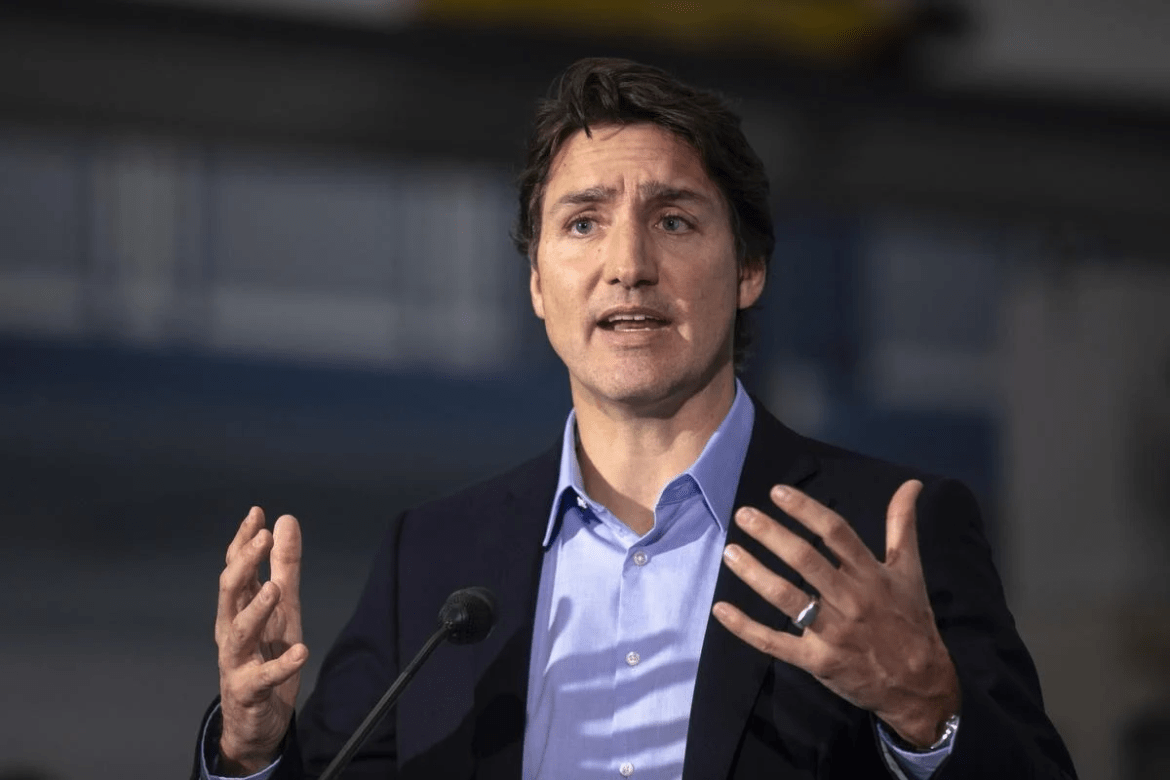AI Generated Summary
- With his Liberal Party trailing the opposition Conservatives by nearly 20 points in the polls and mounting pressure from within his own party to step down, Trudeau is in desperate need of a diversion.
- Facing an upcoming confidence vote and the possibility of an early exit, Trudeau seems to be using the India-Khalistan issue as a political card to shore up support, particularly among influential Sikh voters in key constituencies.
- The Khalistan issue remains a sensitive and divisive one within the global Sikh diaspora, but the Trudeau government’s calculated support of such figures, including Defense Minister Harjit Singh Sajjan, reflects a political strategy aimed at securing Sikh votes rather than promoting genuine dialogue or peace.
While Justin Trudeau’s government has a history of pandering to Khalistani elements within Canada, the latest escalation seems more about his own political survival than any credible security concern.
As Trudeau’s leadership falters, it is becoming increasingly clear that his accusations against India are a distraction from his government’s rapidly sinking fortunes. With his Liberal Party trailing the opposition Conservatives by nearly 20 points in the polls and mounting pressure from within his own party to step down, Trudeau is in desperate need of a diversion. Recent by-election defeats and calls from Liberal MPs for his resignation have only intensified the pressure. Facing an upcoming confidence vote and the possibility of an early exit, Trudeau seems to be using the India-Khalistan issue as a political card to shore up support, particularly among influential Sikh voters in key constituencies.
For years, Trudeau’s government has turned a blind eye to the growing influence of Khalistani separatism in Canada, particularly in British Columbia and Ontario, where significant Sikh populations reside. Sikh voters hold considerable sway in a handful of key ridings, and Khalistani sympathizers have found a platform in Canadian politics. Trudeau’s government has relied on the support of these figures, even as they espouse a separatist ideology that threatens India’s territorial integrity. Political expediency has led to the Canadian government soft-pedaling on this issue, even as pro-Khalistan groups openly organize in the country’s gurdwaras and advocate for a separatist agenda.
Veteran journalist Terry Milewski has long warned of Trudeau’s pandering to Khalistani elements for political gain. This latest development fits the pattern. The Khalistan issue remains a sensitive and divisive one within the global Sikh diaspora, but the Trudeau government’s calculated support of such figures, including Defense Minister Harjit Singh Sajjan, reflects a political strategy aimed at securing Sikh votes rather than promoting genuine dialogue or peace. In areas where Khalistani sympathies run high, standing up to separatism could be politically costly, and Trudeau has consistently chosen the safer route of appeasement.
While Trudeau may hope that his posturing on national security will bolster his standing ahead of elections, it is unlikely to save his crumbling political career. Canadians are increasingly disillusioned with his leadership on a range of issues, from inflation and skyrocketing rents to concerns over immigration. Polls suggest that it’s not just the Liberal Party’s policies that are alienating voters—Trudeau himself has become a liability. His approval ratings have plummeted, and his Conservative rival Pierre Poilievre is emerging as the more favorable candidate.
Trudeau’s gamble on the India-Khalistan issue may temporarily galvanize support from certain Sikh constituencies, but it is unlikely to resonate with the broader Canadian electorate. His government’s failings on economic and domestic fronts remain the primary concern for voters. Trudeau’s attempts to deflect attention by stirring up an international controversy may actually backfire, further eroding his credibility at home and straining Canada’s relations with a key global partner in India.
At the heart of this controversy lies a cynical calculus: Trudeau is betting that he can distract Canadians from his domestic failures by appearing strong on national security. Yet, his accusations against India are not only flimsy but also politically motivated. As the inquiry into foreign interference in Canadian politics continues, it is Trudeau’s own conduct that is increasingly coming under scrutiny. The investigation, which named China as the primary threat, also pointed to potential Indian influence, but Trudeau’s focus on India now feels more like an opportunistic red herring than a genuine national security concern.
In the end, Trudeau’s strategy may prove to be a political misstep. His declining popularity and the mounting discontent within his own party suggest that the writing is on the wall. By escalating tensions with India, Trudeau risks damaging bilateral ties with a vital global partner, all while failing to address the pressing issues facing Canadians. In trying to save his political career, Trudeau may have only hastened its demise.
The opinions expressed in this article are those of the author. They do not purport to reflect the opinions or views of Khalsa Vox or its members.




